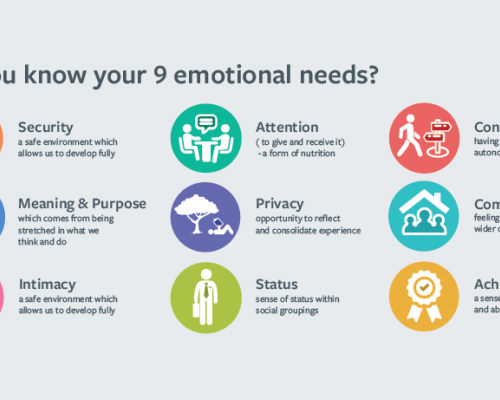Why people with schizophrenia so often use illicit drugs
USE of illicit drugs is common in schizophrenia, with a recent meta-analysis showing that as many as one in four patients had ‘cannabis use disorder’. Although several theories have been put forward from research findings, studies have usually failed to ask the individuals concerned what drug use means to them. This is what consultant psychiatrist Carolyn Asher and professor of primary care psychiatry Linda Gask set out to redress, by asking 17 people diagnosed with schizophrenia and a history of drug use to describe, in their own terms, why they repeatedly used street drugs.
Participants were men and women of different ages and ethnicities from two socially deprived areas of Greater Manchester, one an inner city area and the other a smaller town. They were asked to describe when they had first started using drugs, what their lives were like at that point, the effect the drugs had on them, their drug use since, what their lives had been like over time and what helped them feel better about themselves.
From the information collected, the researchers identified five key reasons for continued drug use. First, it was seen as “an identity-defining vocation”: most had started in their teens, prior to developing mental health problems and felt they had a lot of knowledge about and experience of drugs. For 16 interviewees, substance use had been their main leisure activity or an essential part of their lives as adults.
Second, substance use offered users a sense of belonging; for almost all, it constituted a rite of passage, marking the joining of a community. Most had persistent difficulties with social interaction because of psychotic symptoms and, for the majority, using drugs helped them mix with other people (but only other users, who were more tolerant of paranoia and other symptoms). Also, “Self esteem was experienced as higher in the context of the subculture of substance-use as compared with in mainstream society. Participants could be seen as one of the gang, heroes who had bravely saved others from danger, wise elders, connoisseurs, admired risk takers, intrepid explorers of the mind, entrepreneurs or generous sharers,” report the researchers.
A third reason was feelings of hopelessness about relationships with partners, family and friends, acceptance by the wider community, employment prospects and accommodation. If people had hopes of improvements in these areas, and perceived continued drug use as a barrier to achieving them, they tended to be prepared to stop. Sometimes, the wish to fulfil unrealistic plans led to abstinence, only for relapse to follow the failure of the plans’ fruition. Others felt drug use helped them perform tasks better, whether artwork, music, exercise or household chores.
A fourth reason for drug use concerned belief about symptoms and drugs’ effects on them. One woman, for instance, thought that amphetamines helped her fight off her ‘abusers’ and one man claimed that voice hearing worsened after abstaining, so he had resumed drug use to cope with his anxiety. All agreed that street drugs could cause an increase in unusual experiences or beliefs but most planned to continue their use because the drugs helped with problems such as mood, sleep, appetite or anxiety, or they blamed bad experiences on a particular ‘bad batch’ of drugs or saw no dose-response relationship with psychotic symptoms. Some, too, liked the fact that street drugs helped them focus more on persecutory voices, so that they could outwit them.
Lastly, illegal drug use was seen as akin to or better than taking psychotropic medication. For instance, one woman said cannabis was instantly calming in an emergency, whereas haloperidol took about half an hour to work. Often prescribed drugs weren’t experienced as useful and psychiatrists were seen as hypocritical for discouraging street drugs while insisting on compliance with medication; side effects were commonly disliked and sometimes stimulants were seen as a way to counteract the ‘zombie’ effects of medication.
Seven participants were abstaining from street drugs, because of dislike of effects, illegality of drugs, financial, physical and mental health benefits or hope of improved family relationships.
The authors’ strong conclusions are no surprise to those familiar with the human givens approach: “We have identified five interrelated factors that explain the maintenance of drug misuse in people with a diagnosis of schizophrenia. It was striking that the interviewees’ decisions to use or abstain from substances were readily understandable when placed in the context of their life experiences and beliefs.
“Our results also offer some support for the hypothesis that a common factor may simultaneously increase the risk of drug use and of schizophrenia. Many participants spoke of childhood adversity, including early traumatic experi-
ences, family dysfunction, deprivation and poor educational attainment, all of which have been linked with both schizophrenia and substance use disorders.”
Asher, C J and Gask, G (2010). Reasons for illicit drug use in people with schizophrenia. BMC Psychiatry, 10, 94, doi: 10.1186/1471-244X-10-94
Latest Tweets:
Tweets by humangivensLatest News:
HG practitioner participates in global congress
HG practitioner Felicity Jaffrey, who lives and works in Egypt, received the extraordinary honour of being invited to speak at Egypt’s hugely prestigious Global Congress on Population, Health and Human Development (PHDC24) in Cairo in October.
SCoPEd - latest update
The six SCoPEd partners have published their latest update on the important work currently underway with regards to the SCoPEd framework implementation, governance and impact assessment.
Date posted: 14/02/2024












